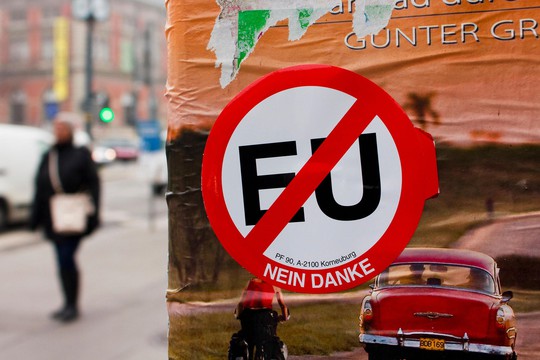"The West rose to global dominance between the 16th and 18th centuries. Yet a closer look at those 300 years reveals that they were rife with war, corruption and unrest… The West enjoyed a level of societal energy that propelled it to global dominance. This was made possible by extending the lifetime and productive capacity of the most important resource of all – human beings. As medicine and hygiene standards progressed, so did life expectancies and birth rates,” writes Ralph Schoellhammer, an assistant professor in economics and political science at Webster University Vienna.
He puts a question: Europe was once the hub of this kind of innovation and development. So why are so many industrial giants now moving production elsewhere?
A few days ago, BASF, the world’s largest chemical company, announced plans to downsize its production in Europe, closing several of its German production facilities and shedding around 2,600 jobs. The German chemicals giant cites increased energy prices as one reason for this, but it omits some crucial other factors – namely, that Europe’s excessive bureaucracy and sky-high taxes means that it is no longer a globally competitive market. In the future, European customers will be supplied with chemicals from China, South Korea and the US.
BASF is a German company, but it is actually older than Germany itself. Founded in 1865, it is six years older than the German state, which was only unified in 1871. In many ways, BASF reflects the ingenuity of the European economy in the 19th century, so it is a fitting starting point to take measure of the Old Continent and where it might be heading in the 21st century.
Today, it is not only BASF and the once-admired German chemical industry that are moving out of Europe. Carmaker Volkswagen also announced recently that the bulk of its future electric-vehicle production will be moved from Germany to the US.
And it is not just Europe that is in trouble, either.
Right now, the US is trying frantically to reduce its dependence on Asia, only to discover that, having neglected its industrial base for decades, it lacks the skilled workforce needed to reshore production.
At a glance, Europe and the US still appear to be the most formidable economies in the world right now. But China also seemed unassailable back in the 16th century, before its decline. Most economic trends are no longer in the West’s favour.
The West is increasingly deluding itself. We are led to believe that Green New Deals and miracle innovations in battery-storage technology will solve all our problems. If our societies still possessed the vitality of their 19th-century predecessors, I could probably be convinced to believe it. But we simply don’t.
There are no perfect moments in any civilisation’s history, only periods that appear as such in hindsight. The central question every nation’s leaders must ask themselves is whether they are managing decline or managing ascent. It’s clear which way much of Europe is heading, notes Ralph Schoellhammer.
read more in our Telegram-channel https://t.me/The_International_Affairs

 10:16 08.03.2023 •
10:16 08.03.2023 •























